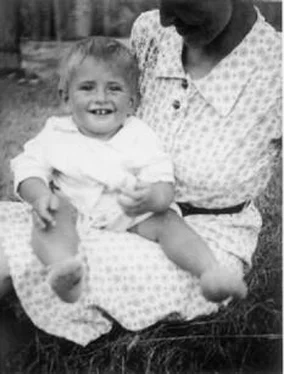Some Icelanders said that they spotted Bobby late at night, walking ghostlike down the deserted and windswept streets near the Old Harbor—like Charles Dickens prowling the docks of London—lost in thought, slightly limping but walking rapidly, as alone as if he’d been roaming the desolate, lava-strewn fields of Iceland’s interior. Bobby’s nocturnal perambulations were an echo of the late night walks he used to take when he lived in New York or Pasadena, and a continuation of the pattern he’d begun in childhood, staying up until the early morning studying chess, and then sleeping until noon or later.
It’s possible that, at this point in his life, a year and a half after landing at Keflavik as a freed man, Bobby began feeling that Iceland was his personal Devil’s Island: once there, never to leave. David Oddsson believed that Fischer felt “trapped” in Iceland in general, and Reykjavik in particular. “I’m a city person,” Oddsson said of himself. “I spend most of my time in Reykjavik. But if I could never go out to the country, that’s precisely where I’d want to go. I would feel trapped in Reykjavik, as Fischer probably feels trapped in Iceland.” Gardar Sverrisson said that, to Bobby, Iceland was a “prison.”
By the time Fischer was completing his second year as an Icelandic citizen, he’d begun to grumble about the country and its people. He missed Europe and friends there, but he didn’t dare leave his ocean-bound haven for fear that he might be captured and extradited. Interpol, the international police organization, had him flagged to be arrested at any one of 368 airports throughout the world.

Finding a permanent place to live in Reykjavik was difficult. Bobby’s first apartment, a furnished sublet he rented for six months, had been ideal: It was downtown, had a bit of a view and a terrace, and he could walk quickly to stores and restaurants. Since Bobby ate every meal out—he never cooked—it was important that he live within minutes of a variety of dining establishments. “Eating was very important to him,” Zsuzsa Polgar said in describing his life in Hungary. It always was, wherever he lived, and quiet meals with foods he enjoyed seemed to be even more important in Iceland.
When the owner of Bobby’s apartment returned from her work abroad, as planned, she notified Bobby that he needed to vacate. Although he realized that he had to move, he didn’t want to give up his comfortable residence. Einarsson managed to convince the owner to let Bobby stay an additional six months, but it was obvious that he’d need to arrange a permanent home after that. Einarsson and Sverrisson began escorting Bobby to various condominium apartments, looking for a place for him to buy. As was typical of him, he approached the purchase of his first apartment as he would a chess game: Before he made a move, everything had to be perfect. It was no surprise then that, initially, there was something wrong with every place he saw: One apartment was too close to the church and he was afraid that the morning bells would wake him; another had too many windows facing the street and he feared for his privacy; a third was too “high”—it was on the ninth floor—and he didn’t want to rely on an elevator. A fourth apartment at first looked ideal, but Bobby detected something “wrong with the air.” He claimed that it hurt his lungs to breathe there. While inspecting a fifth apartment, a plane flew overhead, and he immediately vetoed it as being “too noisy.” Finally, he thought that one apartment had “possibilities,” but his two friends quickly tried to talk him out of buying it because it was right below a tawdry sex shop. That didn’t seem to bother Bobby, since the shop opened late in the afternoon, and therefore it would be quiet in the mornings. Einarsson and Sverrisson pointed out, though, that the apartment was in extremely poor condition and would need repairs amounting to tens of thousands of dollars. Bobby grimaced and agreed not to buy it.
He finally settled on an apartment in Gardar Sverrisson’s building on Espergerdi Street, in a residential section on the east side of Reykjavik, too far to walk downtown, but accessible by two buses. The apartment had two minuses: It was on the ninth floor (which Bobby had previously said was too high), and he’d already rejected this very building because of its “bad air.” Voilà! Magically, heights and air quality suddenly didn’t bother him anymore—for no explicable reason. He just changed his mind.
Even though he was continents away from his wife, Bobby and Miyoko were in constant touch through e-mail and the telephone. She came to Reykjavik as much as her job in a pharmaceutical company—and her editorship of a chess journal in Tokyo—would allow. Most of her visits lasted two weeks and according to Gardar were idyllic for both Bobby and her. The Sverissons and the Fischers would go on weekend outings to the countryside, staying at friendly inns and basking in the majestic lunarlike countryside of Iceland. Family dinners were joyous occasions. “They were an affectionate couple, and acted as any husband and wife might: They were in love and showed it in many small ways,” said Gardar. Although one can’t know what exactly was in Bobby’s mind relative to his marriage, it is altogether possible that he hoped to somehow leave Iceland one day and convince Miyoko to live with him permanently in another country.
His chosen apartment was decidedly not luxurious. Bobby could have afforded a place much larger, but this one was sufficient for his needs. It was a small one-bedroom, had an adequate-sized living room with an open kitchen, and a Juliet balcony that faced the sea. He furnished it comfortably but simply. Prints of Matisse graced the walls.
Bobby’s purchasing the condominium at a price of 14 million kroner (about $200,000 at that time) may have been unconsciously motivated by the desire to be near a friend. According to Einarsson, Bobby had begun to feel ill, although he denied it not only to others but to himself. Having friends nearby would, as it developed, prove beneficial, especially since Gardar’s wife was a nurse.
Once he’d moved into his new apartment, Bobby’s daily pattern changed. He still woke up between noon and two p.m., drank his carrot juice, and went out for his first meal of the day. While he was well, he often took a very long walk to Anestu Grösum, the vegetarian restaurant. Bobby didn’t drive, and if he had the need to go someplace beyond walking distance, he took a bus. A friend observed: “Despite the fact that he was a millionaire, he thought it idiotic to pay for taxis. He had no [misgivings about] standing and waiting for buses in all kinds of weather. Icelanders, for the most part, wouldn’t do it. But he also liked to study people while he was riding.” He was skittish about being driven, whether it was in a taxi—when he was forced to use one—or by a friend, and he’d insist that the driver keep both hands on the steering wheel at all times, never drive too fast, and obey every traffic law and signal. He always sat in the middle section of a bus, which he believed was much safer than the front or back.

Bobby couldn’t escape chess, although he desperately wanted to. “I hate the old chess and the old chess scene,” he wrote to a friend, making reference to his invention of Fischer Random. Nevertheless, there were entrepreneurs flying to Iceland or contacting him from Russia, France, the United States, and elsewhere, who were trying to entice him to play—any kind of chess was acceptable, just to encourage and ease him back into the game. It had been more than thirteen years since the second Fischer-Spassky match, and people were saying, fearing, he might never play again. They didn’t want another twenty-year disappearance.
Читать дальше



![Антон Текшин - EndGame [СИ]](/books/394477/anton-tekshin-endgame-si-thumb.webp)









